En los medios

Americans north and south should worry about Donald Trump’s cabinet of military men
La profesora del Departamento de Ciencia Política y Estudios Internacionales de la UTDT afirma que el hecho de que Donald Trump haya escogido al General John Kelly para dirigir el Departamento de Seguridad Nacional de EEUU les debería preocupar no sólo a los latinoamericanos sino que "los ciudadanos estadounidenses también deben tener miedo ya que su designación presagia la militarización, no la seguridad”
Should Latin Americans be concerned that Donald Trump has picked General John Kelly to lead the United States Department of Homeland Security? Kelly oversaw the US military’s Southern Command – which oversees US military operations in Latin America and the Caribbean.
In truth, US citizens should also be scared. Designating a general to protect the nation from threats to life and liberty portends militarisation, not security. Soldiers trained for combat discern enemies in every expression of dissent.
Perhaps that seems exaggerated. Some will recall that president Obama also tapped a man associated with the defence sector as secretary of Homeland Security. Yes, in December 2013, Jeh Johnson, previously General Counsel of the Air Force under president Bill Clinton, assumed that role. But Johnson is a lawyer, not a military man.
At the helm of Southcom, Kelly will have acquired the habits of the US strategy for addressing Central America and the Caribbean’s security concerns: deploying America’s armed forces to train other countries’ armed forces to combat drug trafficking and organised crime.
The US did this in Latin America throughout the 1990s and 2000s; yet in the US, such activities are assigned to the police, not the defence sector.
If only for that reason, Latin Americans and Caribbeans should be worried. Kelly will be a strategic part of president-elect Donald Trump’s announced policy of dealing with immigration as a national security problem, not a humanitarian issue. Although at Southcom the retired general may have had a broader focus on Latin America’s problems, at homeland security Kelly won’t be able to stray far from his boss’s orders.
Nor does he seem inclined to. A few months ago, Kelly said, “Unless confronted by an immediate, visible or uncomfortable crisis, our nation’s tendency is to take the security of the Western Hemisphere for granted. I believe this is a mistake”.
Kelly’s distrust of Latin America could result in a strengthening of the regional military relationships of a prior era, from military indoctrination at the School of the Americas and quiet support for military coups to expressed distrust of civil political authorities.
This isn’t so different from how his Republican colleagues view their neighbours to the south. In March 2015, Arizona senator John McCain, Chairman of the Committee on Armed Services, stated: “We are all particularly concerned about Central America, which is mired by feeble governance and weak security institutions, high rates of corruption, and is home to several of the most violent countries in the world.”
In the same hearing, Kelly sustained that “Southcom is the only government organisation that is 100% dedicated to looking at the issues of Latin America and the Caribbean.”
Woe be to Latin America if its relationship with the US government actually depends on Southcom.
Militarising human rights
American citizens probably wouldn’t be pleased if the promotion and defence of their human rights was handed over to the military.
Latin America knows to worry when the military takes charge. Here, scenes from Chile’s 1973 coup. ReutersJames G. Stavridis, a former Southcom director and dean of the Fletcher School of Law and Diplomacy at Tufts University, wrote in 2014: The divisive struggle in the 1990s over the US Army School of the Americas is an example of how difficult it can be to reach common ground, as well as how counterproductive an adversarial relationship between the US military and the human rights community can be.
Yet, thanks to America’s Human Rights Initiative of 1997, Southcom has been in charge – surely at the cost of more sensible missions – of promoting a human rights model program for military forces. Given the history of civilian repression under Latin America’s armed forces, this should be a priority for the region – but civilian specialists in human rights should do the job, not US troops.
In Latin America we have learned from experience to be genuinely concerned when our armies begin to take on domestic security functions. The US has federal law and a strong tradition of civilian law enforcement; the military cannot take on police duties except in catastrophic cases, like natural disaster recovery. Will Kelly start a new tradition once he’s directing domestic security?
Militarising everything else
Indicators of the militarisation to come are bolstered by the designation of General James Mattis as Defence Secretary. If he receives a waiver for the federally required seven-year gap between military and government service, he will become only the second general ever to lead the Pentagon.
US border control is already militarised, but Kelly has promised to treat immigration as a national security threat. Rick Wilking/ReutersThis is worrying some government officials. “While I deeply respect General Mattis’s service, I will oppose a waiver,” New York senator Kirsten Gillibrand said in December 2016. “Civilian control of our military is a fundamental principle of American democracy”.
Rounding out his cabinet of generals, Trump has also named Lieutenant General Michael T Flynn as national security adviser; Admiral Michael S Rogers as the director of national intelligence; and Mike Pompeo, graduate of the West Point military academy, as CIA Director.
As US Senator Jack Reed once observed, often what starts as Southcom’s problem “soon becomes Northcom’s problem” – that is, an American concern.
Even if the wall on the US-Mexico border is never built, the military-focused incoming cabinet of Donald Trump seems likely to share a predominantly negative view of Latin America.
So today, in Latin America, we find ourselves reversing Reed’s notion: what starts out Northcom’s problem may soon become Southcom’s problem.
Conocé nuestros programas
Nuestra oferta académica está diseñada para formar profesionales capaces de liderar en ámbitos académicos, políticos y sociales.


Aprendé con
los mejores
Nuestro cuerpo docente se distingue por su rigurosa formación doctoral en las universidades más prestigiosas del mundo. Su alta dedicación y su conocimiento y experiencia internacional los habilitan para desempeñarse exitosamente en distintos ámbitos y proveer a los/as estudiantes de una sólida formación multidisciplinaria.
en Argentina para dictar
clases de grado y posgrado.
Fuente: Ranking Teaching, Research and International Policy (TRIP) International Relations Survey, 2014.
La Di Tella está entre las 150 mejores universidades del mundo en el área de Ciencia Política.
(Fuente: QS World University Rankings 2023)
Conocé a nuestro cuerpo docente
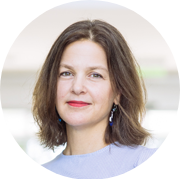
Jennifer Cyr
Ph.D. in Political Science, Northwestern University.
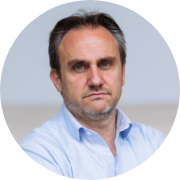
Sebastián Etchemendy
Ph.D. in Political Science, University of California at Berkeley.
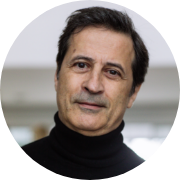
Enrique Peruzzotti
Ph.D. in Sociology, New School for Social Research.
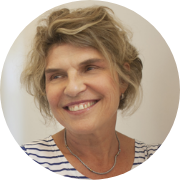
Catalina Smulovitz
Ph.D. in Political Science, The Pennsylvania State University.

Hayley Stevenson
Ph.D. in International Relations, University of Adelaide.
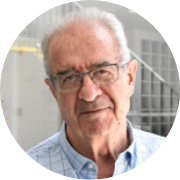
Juan Carlos Torre
Docteur en Sociologie, École des Hautes Études en Sciences Sociales.
Novedades
Reuniones informativas
Cátedras y centros de investigación
Un espacio académico para el análisis, conocimiento y difusión del país de manera integral. Tiene el propósito de establecer un ámbito plural desde el cual enriquecer el diálogo entre Argentina y Colombia.
Una iniciativa conjunta de la Universidad Torcuato Di Tella, la Embajada de Francia en Argentina y el Instituto Franco Argentino que tiene por objetivo promover el intercambio académico y el diálogo.
de cambios en Cuba
El proyecto "Tiempo de cambios y el nuevo rol de las fuerzas armadas en Cuba" busca informar a actores que sean disidentes y críticos de las fuerzas armadas revolucionarias de Cuba (FAR) de dos maneras diferentes.
Departamento de Admisiones
Contacto


